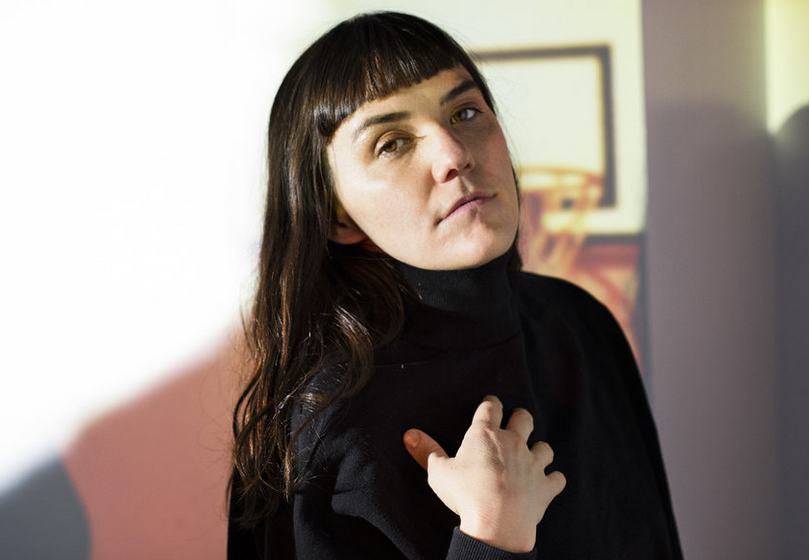
Composer and producer Emily Wells is known for her varied use of classical and modern instrumentation. She has been called “a master of blending the worlds of classical and electronics” by NPR. Wells’s latest album, This World is Too _____ For You was released in March. Here, she briefly writes about her experience composing and contributing music to Season 2 of The Paris Review Podcast.
Late this summer I spent a long, languid day with Charles Wright by way of Bill Callahan’s recorded voice in my studio. Bill Callahan has the kind of voice you can hang just about anything on. His reading of “Laguna Blues” was completely void of affect, but not dry, not without breaking your heart to bits. You were in steady hands, but the reader had seen things. Trust. His voice, like music, held it for you. So I put the poem’s reading on repeat through the speakers in my studio for a very long time; I wanted to build up something around it without getting in its way. All day and into the evening the poem repeated while I played along on synths and violin. The studio felt pillowy and humid and warm. I went with that.
My experiences creating score have always been unconventional, The Paris Review being no exception. My first go-round, I was asked to score a yet-to-be-made documentary about a writer whose work I’d never read. I bring it up now because upon reflecting on “process and scoring” versus “process and making records,” I see that this early project invigorated the idea that a song could have companionship with literature or poetry or critique, for that matter (enter John Berger), that one was there to feed the other and that even without a direct relation, my palette as a musician could contain these hidden colors and ideas. As part of my studio practice, I could turn to a book when I got stuck and had lost all context of myself. I could even begin there.
Scoring is about making a different kind of art object than a song or an album. There’s a kind of relief to creating score because you can get out of your own way and put yourself inside this other form, these other characters, times, or aesthetics atypical from your normal mechanisms of creation. There are different kinds of stakes and, if you’re lucky, you have the delight of serving a project and a maker other than yourself, and sometimes getting the job of wrenching something holy out of the beholder. I’ve learned, however, that I must still engage parts of my process that feel familiar in order to bring some kind of personhood, or empathy, or emotionality, or guts to the piece. I can’t completely abandon the process I know. I must try to access the thing I reach for whenever I write a song.
Aside from “Laguna Blues,” scoring for The Paris Review got me out of my process in one other important way: the jam session. In actuality, this was a delightful day of improvisation in a recording studio in Midtown with three other musicians—Mike Brown, Sam Ospovat, and Dave Cieri. We filled out sketches each of us had brought to the table, began a few from scratch, and did some wrenching together. It is from this day of writing and recording that the producers of the podcast pieced together a musical world in which the readings and archival tape now live. I told John DeLore, one of the producers, over the phone after he suggested the session, “You’re describing my worst nightmare right now. I’m terrible at jamming.” He laughed at me good-naturedly and managed to talk me into it. And he was right. I loved it.